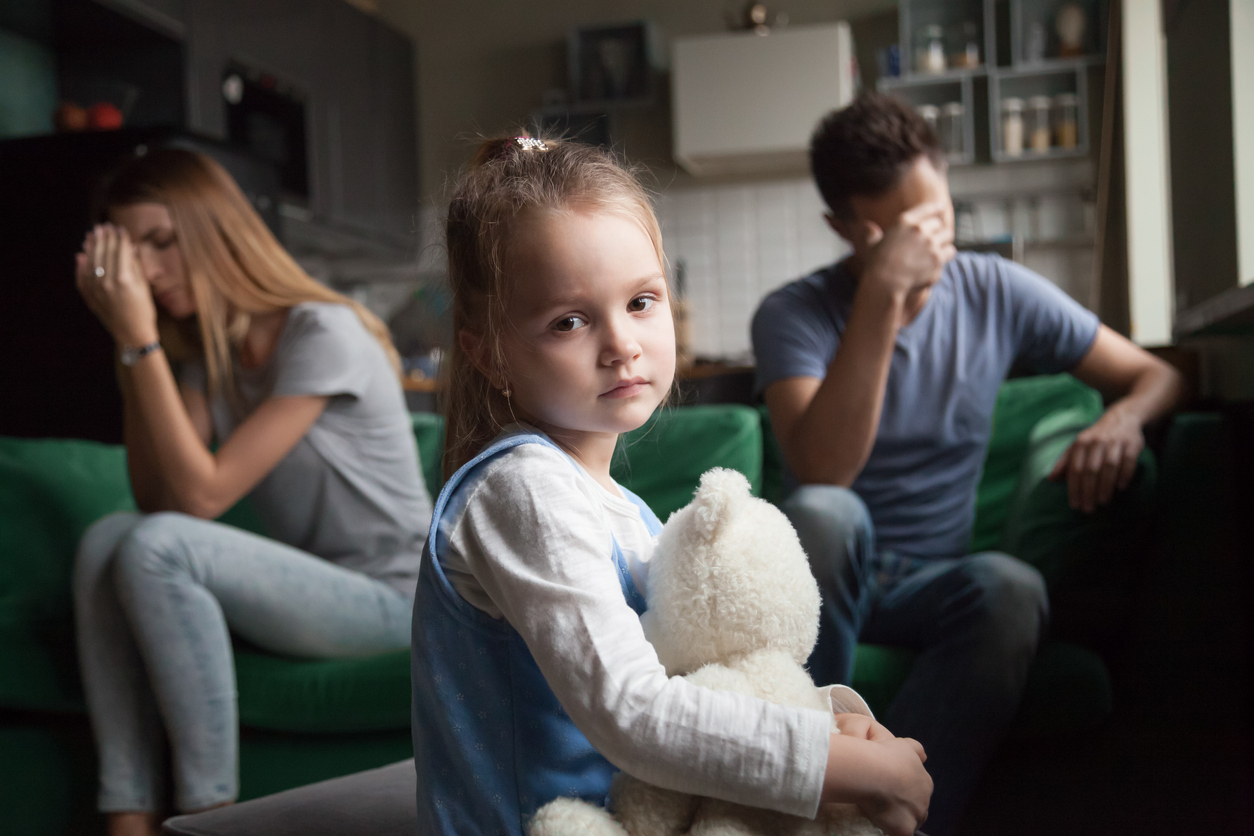Parents usually try to do right by their children by teaching them valuable life lessons, manners, and how to manage and express their emotions in a healthy manner. Unfortunately, not everyone’s home life is quite as picturesque as they’d like. It’s important to remember that parents are only human like the rest of us and that means that, sometimes, they make mistakes that can negatively impact their children without meaning to. One of those mistakes is fighting in front of their children. Whether you’re married, separated, or classified as common-law partners, adult relationships are far from perfect and sometimes parents argue when they disagree on fundamental aspects of their relationships. You might not realize this, but parental fighting can have a substantial impact on your child’s development and ultimately how they perceive and navigate the complex world of adulthood.
The Effects of Parental Fighting on Children
Excessive parental fighting can create a very hostile environment for children. Growing up in a hostile environment can be extremely traumatizing and stressful for children to the extent that it could seriously impact their emotional development, social behaviours, and their overall well-being. Children thrive when they have a strong sense of stability and that starts at home.
When parents are constantly fighting and tearing each other down, that sense of security is also destroyed. Suddenly, children may feel as if their home isn’t the safe haven they thought it was and this can make them feel isolated, alone, and worst of all, like they’re at fault for the conflict they’re witnessing. The impact of this conflict can manifest itself in the following ways:
Reduced Cognitive Performance
Children can have a hard time concentrating on important tasks such as schoolwork, chores, or part-time jobs because they’re constantly worried about the turmoil going on at home and this can cause them to underperform in other areas of their lives. But it doesn’t stop with childhood. These feelings of fear and anxiety have a tendency to follow children well into adulthood where they can develop into mood disorders like depression, generalized anxiety, bipolar disorder, and so forth. Seeking out the appropriate type of family counselling can help you, your partner, and your kids work through some of these issues and form a healthier communication method that allows you to express your feelings in a productive manner.
Relationship Problems
Children, especially when they’re at a young age, soak everything up like a sponge. Parental relationship dynamics are like a model for the types of relationships children will have when they’re older. If your children constantly witness you and your spouse disrespecting and belittling one another during an argument, then they’ll grow up thinking that’s what a healthy, normal relationship entails. In turn, they’ll end up entering into similar relationships where they’re either the aggressors, the victims, or both. Through intricate marriage counselling you can help improve your relationship with your partner and set a better example for your children.
Behavioural Problems
According to many childhood educators and teachers, one of the biggest indicators that a child is living in a hostile home environment is when they start exhibiting behavioural problems in the classroom. Oftentimes, children who have an emotionally trying home life will act out in ways that are unorthodox or completely out of character. They might start attacking other children, throwing temper tantrums when the teacher asks them to complete certain tasks, or destroying public and school property.
Developing Health Problems
Children tend to blame themselves whenever things aren’t going well at home. They most likely feel guilty or even invisible because their parents are too preoccupied with their own problems to pay attention to them. As a form of self-sabotage or to get their parents’ attention, some kids could develop serious health issues like eating disorders, sleep disorders, and deep-rooted emotional disorders. Sometimes, the sheer stress and anxiety of dealing with parents who are constantly at each other’s throats can even cause physical illnesses.
Substance Abuse in Older Children and Teenagers
Older children like teenagers might develop self-deprecating habits such as turning to drugs and alcohol to escape their problems. Prescription drugs and alcohol are the two most common types of substances of choice that teenagers typically find in their own homes. Counselling for children and teens can help affected youth find healthy and effective coping strategies to deal with whatever is going on at home.
Other Effects of Parents Fighting in Front of Children
Other potential effects of children witnessing excessive parental fighting can include developing a generally negative outlook on life, losing interest in things they used to love doing, closing themselves off from their friends and other family members, and self-harm.

Solutions to Reduce the Impact of Parental Fighting
Eliminating parental fighting altogether is impossible. The fact is that couples disagree on things and they inevitably argue. There’s no way of getting around that. But, you can change the way in which you express those feelings of anger and disagreement without causing a tremendous discord in your household.
Marriage and parenting are both unique partnerships and both you and your partner need to establish a harmonious balance between your different opinions and parenting styles. If you find that your arguments are getting too out of hand on a regular basis, here are a few solutions you may want to consider trying:
Regardless of what your family is currently going through, there are a lot of excellent resources available to help you overcome your struggles together.